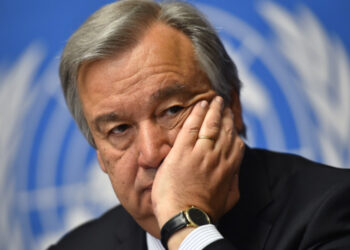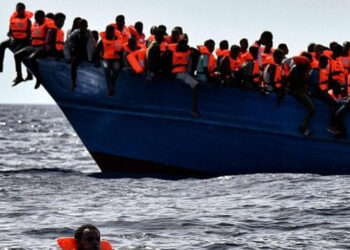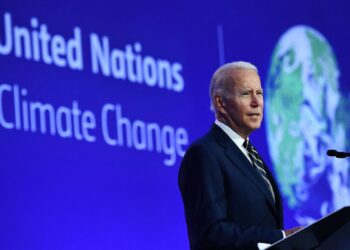U.N. Secretary-General Antonio Guterres said it was vital “to save the Pacific to save the world” as he wrapped up his brief South Pacific tour in Vanuatu on Saturday.
Guterres has spent the past week in the region pushing for urgent action ahead of a U.N. summit in September billed as a last chance to prevent irreversible climate change.
According to the U.N., Vanuatu is the world’s most at-risk country from natural hazards, but Guterres said it was also “leading the way” with is resilience.
At a joint press conference with Vanuatu’s Prime Minister Charlot Salwai, Guterres praised the way the country had bounced back from the catastrophic Cyclone Pam which lashed the archipelago in 2015.
It claimed at least 15 lives, flattened villages and impacted nearly half the 300,000 population.
#CyclonePam: 24 confirmed dead, some 3,300 ppl sheltering in 37 evac centres: http://t.co/8ld7W0t9zq #Vanuatu pic.twitter.com/Ywk2SddPFB @UNOCHA
— United Nations (@UN) March 16, 2015
“It is clear that the Pacific is on the frontline of climate change even though they don’t contribute to climate change,” Guterres told AFP, referring to low-lying Pacific islands which are threatened by rising sea levels.
“So the Pacific has the moral authority to offer a lesson for the rest of the world. We absolutely need to save the Pacific to save the world.”
After Tropical #CyclonePam: Vanuatu in pictures from @UNOCHA_ROP http://t.co/YBDYWpOybG pic.twitter.com/psRZYfu0CW
— United Nations (@UN) May 18, 2015
What’s Next
The U.N. target is to limit rises to 1.5 degrees Celsius (2.7 degrees Fahrenheit) above pre-industrial revolution levels and Guterres urged governments “to understand that we need transformative measures, in industry, in agriculture and in relation to the oceans.”
“I believe it is time to recognise that we need to shift taxation away from people to carbon and pollution instead,” he said.
“We need to stop subsidies for fossil fuels. It doesn’t make any sense that taxpayers’ money is contributing to increased storms, the spread of drought, glaciers melting, corals bleaching and putting these islands in danger.”
More on the Subject
On Saturday, The Guardian has become the first outlet to change the language it uses to cover climate change.
https://twitter.com/KathViner/status/1129321309572354048
“Instead of ‘climate change’ the preferred terms are ‘climate emergency, crisis or breakdown’ and ‘global heating’ is favoured over ‘global warming,’ although the original terms are not banned,” Damian Carrington, the Guardian’s environment editor wrote.
https://theglobepost.com/2019/04/10/food-climate-change-solution/
























